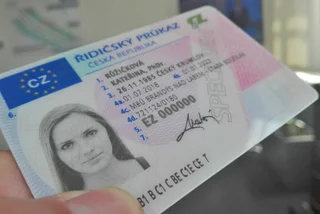On some sections of Czech highways, it could be possible to increase the permitted speed up to 150 kilometers per hour (km/h). This was among the changes to the Road Traffic Act approved by the Chamber of Deputies Wednesday.
If signed into law, Czechia would have the second-fastest roads in Europe, following Germany which has some roads with no speed limit. Bulgaria and Poland have limits of up to 140 km/h.
The increase would only apply to new and modernized sections where the authorities allow it. A similar proposal was approved by the Chamber of Deputies in 2015, however, the Senate rejected the idea.
Only some road sections would qualify
According to the Transport Ministry, the increase in the speed limit will only apply to straight and clear highway sections. "An additional condition for increasing the limit is that selected sections will be equipped with telematics and variable signs that will allow the speed to be reduced to below 100 km/h in the event of adverse weather, reduced visibility, and son," the office said.
Ministry spokesman František Jemelka said South Bohemia's D3 was an example of a highway where the increased speed could apply.
The system of penalty points for drivers could also be simplified from the current five groups of penalty points to three. Drivers will only receive two, four, or six penalty points for offenses. Some fines will increase. The amendment tightens the penalties for, for example, blocking the passage of a tram.
🇨🇿 MPs pass law which wd increase motorway speed limit to 150 km/h in places.
— Rob Cameron (@BBCRobC) June 28, 2023
This - if Wikipedia is correct - would make 🇨🇿 motorways the second fastest after 🇩🇪 (no limit on many stretches, tho 120/130 common).
In 🇧🇬 and 🇵🇱 it's 140.https://t.co/mkEYi2umK3 pic.twitter.com/uPxUtII2Ok
In the lower house, 163 of the 169 deputies present across all clubs supported it in the final vote. It will now go to the Senate, and if approved there head to the president for his signature.
The amendment would also make it possible to drive a personal car under the supervision of a mentor from the age of 17. The point is to acquire driving skills under the supervision of an experienced chauffeur. Drivers also will not have to carry a driver's license and vehicle certificate, apparently from 2024. This obligation was originally supposed to end on July 1, 2025. Licenses and registration would be kept in a database.
"This is a significant change in the rules of road traffic, which aims to ensure greater safety on the Czech road and highway network," Transport Minister Martin Kupka said.
No changes for truckers or cyclists
Deputies rejected a proposal to create a new exception to the ban on weekend truck driving to allow trucks to go to a place where goods are unloaded. The approved amendment does give the Transport Ministry the possibility to grant an exception to the ban on weekend truck driving, for reasons of national security, protection of life, health or property, as well as an extraordinary event or elimination of its consequences.
Current law prohibits trucks and other large vehicles from driving on highways and first-class roads on Sundays and public holidays from 1 p.m. to 10 p.m. During the holidays, such vehicles are not allowed to drive on Saturdays from 7 a.m. to 1 p.m. and on Sundays from 5 p.m. to 9 p.m.
Efforts to overturn the current requirement for drivers will also have to maintain a minimum distance of 1.5 meters when overtaking cyclists failed. The lower house also rejected a proposal that all cyclists, regardless of age, must wear a helmet while riding. It is now compulsory until the age of 18.












 Reading time: 2 minutes
Reading time: 2 minutes 






























